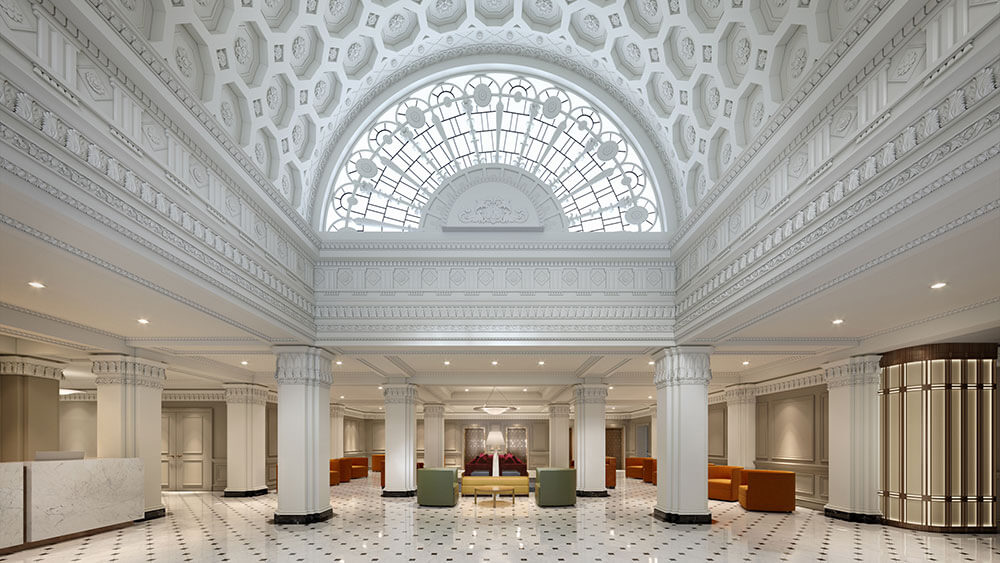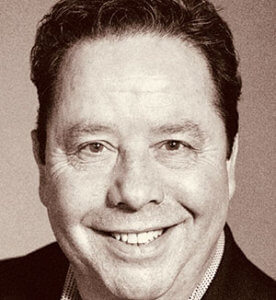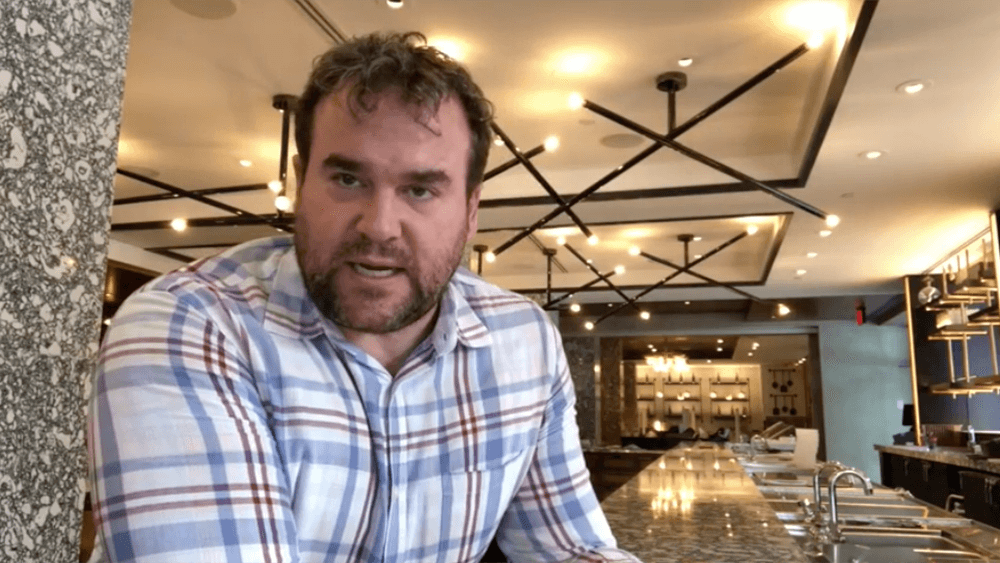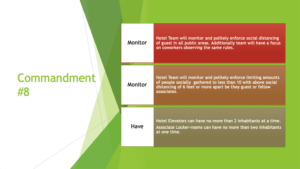
The Hamilton Hotel in Washington, D.C., found a way to keep its staff members employed during the COVID-19 crisis through a learn-from-home training program. (All photos courtesy Hamilton Hotel)
Millions of people lucky enough to remain employed during the COVID-19 pandemic have had to adjust to working from home. But for one hotel’s employees — who work at jobs that can’t easily be transferred to a remote situation — that adjustment included on-the-job learning.
In May, the Hamilton Hotel in Washington, D.C., launched Hamilton University, a program that provides work-from-home training for all of its employees. The program was designed to not only keep staff employed, but to help them learn on the job and improve the hotel experience for employees and visitors when the world opens again.

Mark Driscoll
The program offers courses in several hospitality and F&B areas so employees can learn about new protocols and procedures before returning to their on-site jobs — jobs that would have been lost without Hamilton University.
The U.S. Bureau of Labor Statistics reported that 7.7 million hospitality and leisure jobs were lost in April, and 70 percent of direct hotel employees have been laid off or furloughed since March.
But not at the Hamilton, which was deemed an essential business, so it stayed open at severely reduced capacity during the pandemic.
“We were only forecasting a 10-percent occupancy for a 318-room hotel, which obviously isn’t much,” said managing director Mark Driscoll. “We wanted to keep our staff whole, but we needed only so many people to keep three floors open.”
Driscoll and his team — with the support of Jonathan Wang, president of the hotel’s owner, EOS Investors — came up with a plan. “We decided to cross-train our staff and develop them for both growth in the hospitality industry and their personal growth,” Driscoll told Convene. “Because of the nature of the industry, often there is no time for this kind of training. We saw an opportunity to utilize this time to further educate our staff.”
Hamilton University’s curriculum includes training guides from industry organizations as well as from the Hamilton itself. Employees are training for certifications in the following subjects:
- TIPS (alcohol) certification
- ServSafe (food handler) certification
- COVID-19 cleaning training via EcoLab
- Classes on wine, spirits, and beer
- Menu and ingredient training
- Barista certification/summer and fall drink production focus
- Hospitality online coursework
- Second language training through Rosetta Stone
- Harassment training for management and line-level associates

Chris Van Jura, general manager of the Hamilton Hotel’s Via Sophia restaurant, welcomes his “students” to Hamilton University in a YouTube video.
How Classes Work
Each hotel department utilizes various platforms for its training purposes, with nearly all of them giving hotel management a “documentable” way to track participation and progress, Driscoll said.
Some of the TIPS and other trainings are done in live Zoom sessions led by senior staff members, for example, but augmented by literature from the certification groups. Chris Van Jura, general manager of Via Sophia restaurant within the Hamilton, uses his past acting experience for his classes on wine, spirits, and beer as well as menus and ingredients on YouTube. He follows each video class up with a quiz created on Typeform, an online form service.

The Hamilton Hotel’s “COVID Commandments” for employees covered rules to follow to keep everyone healthy.
Some of the classes do require in-person training, Driscoll said. The tradesmen at the hotel, for example, took advantage of the hotel’s low occupancy levels to teach the engineering team carpentry skills. When training is required on site, each department splits teams into smaller groups that make it easier to maintain physical distancing. These groups rotate class days and times. Employees also review and sign the “COVID Commandments,” a set of rules to follow while working on site that cover such items as proper physical distancing, hand washing, and .
The Rosetta Stone language classes may not require face-to-face training, but Driscoll said he is happy to see the multicultural staff members speak to and understand each other now that they’ve learned another language. Employees enrolled in Spanish, French, or Italian, because many employees speak Spanish and the hotel’s research on international visitors found that a large percentage speak French and Italian.
“When I hear English speakers and Spanish-speaking employees using and practicing language with one another, … it’s probably one of the most rewarding things I see,” he said. “It creates relationships that didn’t exist before because they just couldn’t communicate well. Now they’re more apt to want to do so.”
Getting employee buy-in was important for Hamilton University to take off, Driscoll said, and there were some challenges. Some employees would have made more with the extra federal incentives and unemployment checks, he said. Yet very few opted to leave the company, he said.
“Everybody was on board,” he said of what he called a “loyal family” of employees. “I am very proud to have built Hamilton University; I can feel good about our people being at home — learning and growing.”
The Hamilton Hotel is fully open now, but Driscoll plans to continue offering Hamilton University classes. “As long as we improve in this environment and it helps us serve our guests better and they grow professionally, it’s a good thing.”
Curt Wagner is an associate editor at Convene.
